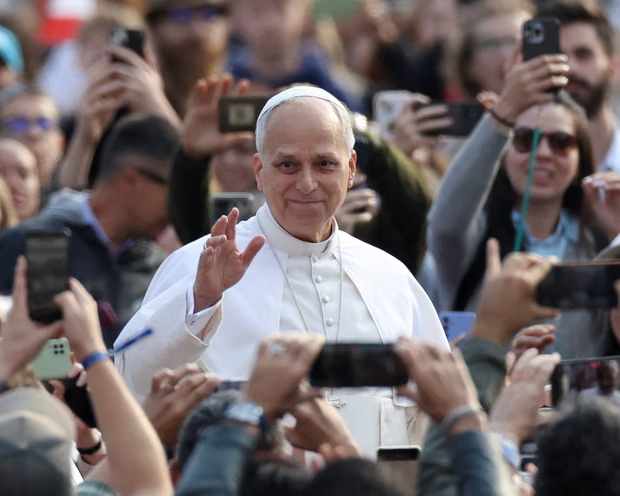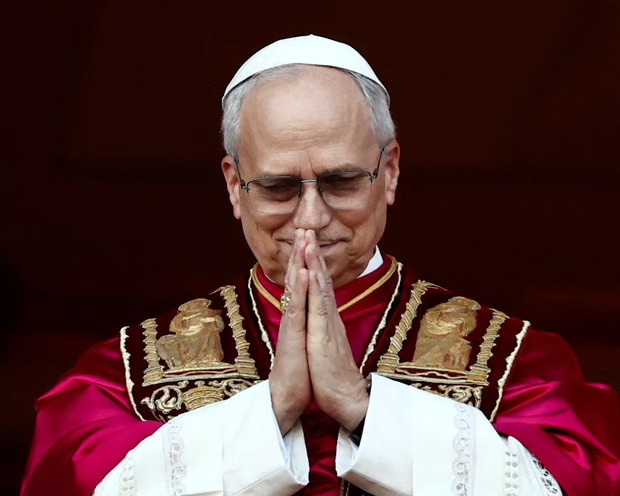When King Charles meets Pope Leo XIV at the Vatican this week, the encounter is expected to blend spiritual symbolism with diplomacy. The two leaders will reportedly discuss urgent global challenges while marking a moment of shared prayer.
Only five months into his papacy, Pope Leo XIV—the first North American to lead the Roman Catholic Church—is gradually defining his vision amid a backdrop of geopolitical tension and resurgent nationalism. Yet, hopes among conservative Catholics for a sharp departure from the progressive direction of Pope Francis appear increasingly misplaced.

“It’s become clear that Leo is cut from much the same cloth as Francis,”
said Christopher White, author of Pope Leo XIV: Inside the Conclave and the Dawn of a New Papacy and a senior fellow at Georgetown University.
“They differ in temperament—Francis was impulsive and informal, Leo is measured and deliberate—but both share a pastoral focus on the poor and marginalized.”
Leo’s early choices suggested a potentially more traditional pontificate. Upon his election in May, he struck a conservative tone by wearing the red mozzetta—a papal garment abandoned by Francis—and moving into the opulent Apostolic Palace rather than Francis’s modest Santa Marta residence. His decision to vacation at Castel Gandolfo, another papal retreat long unused by Francis, reinforced perceptions of a stylistic return to Vatican tradition.
He also courted conservative circles, meeting privately with Cardinals Raymond Burke and Robert Sarah, both outspoken critics of Francis. Leo’s permission for Burke to celebrate a Latin Mass at St. Peter’s Basilica—something Francis had forbidden—was interpreted as a symbolic olive branch to traditionalists.
Yet these gestures, while significant, may have misled those anticipating a doctrinal realignment. Recent developments suggest continuity rather than rupture.
In early October, Leo received a delegation of U.S. bishops who presented letters from immigrants fearful of deportation under former President Donald Trump’s policies. According to Bishop Mark Seitz of El Paso, the pope urged them to “speak strongly” in defense of migrants—an unmistakable echo of Francis’s advocacy.
Days later, during a Mass in St. Peter’s Square attended by over 10,000 people, Leo described migration as an “opportunity” for Western Christians—a comment that contrasted sharply with nationalist rhetoric in U.S. politics. He went further, telling reporters:
“Someone who says, ‘I am against abortion but support inhuman treatment of migrants,’ cannot claim to be pro-life.”
The pope has also maintained Francis’s environmental agenda, chastising leaders who “mock the evidence of climate change” and “blame the poor for what afflicts them most.” His first apostolic exhortation, Dilexi te (“I Have Loved You”)—a text initiated by Francis—emphasizes solidarity with the poor and condemns “the dictatorship of an economy that kills.”

In language reminiscent of his predecessor, Leo writes:
“While the number of poor increases, the world’s wealthy elite live in isolation, detached from reality. Such indifference sustains a culture that discards millions, tolerating hunger and human indignity as if they were inevitable.”
Last week, Leo addressed a UN conference, condemning the use of hunger as a “weapon of war” and decrying a “soulless economy” and “unjust system of resource distribution.” These interventions, analysts say, mark the true emergence of his papacy.
“Leo’s pontificate has now found its momentum,”
observed Christopher Lamb, CNN’s Vatican correspondent.
“He may be more reserved than Francis, but his commitment to social justice and global solidarity is just as strong. Predictably, he’s now facing backlash from the same conservative factions.”
Some of those critics have labeled him “the woke pope,” with the traditionalist blog Rorate Caeli urging him to “return to his previous silence.” But if recent weeks are any indication, Pope Leo XIV appears determined to speak—softly, perhaps, but firmly—on behalf of the Church’s most vulnerable.


